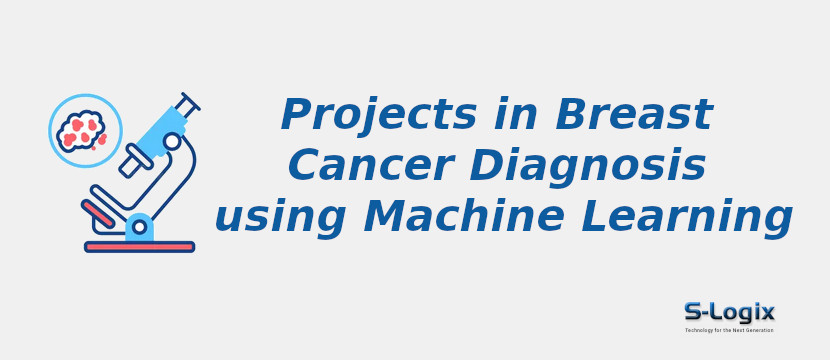Project Background:
The project background in breast cancer diagnosis using machine learning revolves around leveraging advanced computational techniques to enhance the accuracy and efficiency of identifying and classifying breast cancer. Traditional methods of breast cancer diagnosis involve manual interpretation of medical imaging, including mammograms, which can be time-consuming and subject to human error. The application context involves the development of models that can learn patterns and features indicative of breast cancer from vast datasets of medical images. These models, often based on deep learning algorithms, aim to automate the diagnostic process, providing faster and more consistent results. This project seeks to improve early detection, reduce false positives, and enhance the overall efficiency and accuracy of breast cancer diagnosis, contributing to better patient outcomes and healthcare outcomes.
Problem Statement
- This project greatly revolves around the challenges associated with traditional diagnostic methods, including manual interpretation of medical images, which can be time-consuming and prone to human error.
-
Key issues include the complexity of identifying subtle patterns indicative of cancer in medical data among different healthcare professionals and the desire to improve early detection rates while minimizing false positives.
-
The project aims to address these challenges by developing machine learning models capable of automating breast cancer diagnosis and offering faster and more consistent results.
-
Additionally, considerations such as model interpretability, generalization to diverse patient populations, and integration into existing healthcare workflows are essential to ensure the applicability and reliability of machine learning-based breast cancer diagnosis.
Aim and Objectives
- Improve the efficiency and accuracy of breast cancer diagnosis by applying machine learning techniques to analyze medical imaging data.
Develop machine learning models for automated breast cancer detection and classification.
-
Enhance early detection rates while minimizing false positives in diagnostic outcomes.
-
Improve the interpretability of machine learning models to facilitate clinical acceptance and understanding.
-
Ensure the generalization of models across diverse patient populations and medical imaging datasets.
-
Integrate machine learning tools seamlessly into existing healthcare workflows for practical application.
-
Evaluate and validate the performance of machine learning models against established clinical standards.
Contributions to Breast Cancer Diagnosis using Machine Learning
1. The development of models capable of automated detection and classification of breast cancer in medical imaging reduces reliance on manual interpretation and enhances efficiency.
2. Advancements in the accuracy and reliability of breast cancer diagnosis through the incorporation led to enhanced early detection and reduced false positives.
3. The development of models can generalize effectively across diverse patient populations, ensuring the applicability of machine learning-based diagnostic tools in various demographic groups.
4. Efforts to integrate machine learning tools seamlessly into existing healthcare workflows, facilitating practical adoption by medical professionals.
5. Contributions to personalized medicine by leveraging machine learning to analyze patient-specific data and recommend tailored treatment plans based on individual characteristics.
6. Rigorous evaluation and validation of machine learning models against established clinical standards, ensuring that the technology meets the robustness and reliability required for clinical applications.
Deep Learning Algorithms for Breast Cancer Diagnosis
- Convolutional Neural Networks (CNNs)
-
Support Vector Machines (SVM)
-
Random Forest
-
Logistic Regression
-
Deep Neural Networks (DNNs)
-
Gradient Boosting Machines (GBM)
-
K-Nearest Neighbors (KNN)
-
Decision Trees
-
Ensemble Learning
-
Recurrent Neural Networks (RNNs)
Datasets for Breast Cancer Diagnosis Using Machine Learning
- Wisconsin Diagnostic Breast Cancer (WDBC)
-
Wisconsin Prognostic Breast Cancer (WPBC)
-
UCI Breast Cancer Wisconsin (Original)
-
UCI Breast Cancer Wisconsin (Prognostic)
-
INbreast - Digital Mammography Database
-
BreakHis - Breast Cancer Histopathological Database
-
CBIS-DDSM (Curated Breast Imaging Subset of DDSM)
-
Mammographic Image Analysis Society (MIAS) Database
-
UCI Breast Histopathology Images
-
TCGA Breast Cancer Dataset
Performance Metrics
- Accuracy
-
Sensitivity (Recall)
-
Specificity
-
Precision
-
F1 Score
-
Confusion Matrix
-
Matthews Correlation Coefficient (MCC)
-
Kappa Statistic
-
Area Under the Receiver Operating Characteristic curve (AUC-ROC)
-
Area Under the Precision-Recall curve (AUC-PR)
